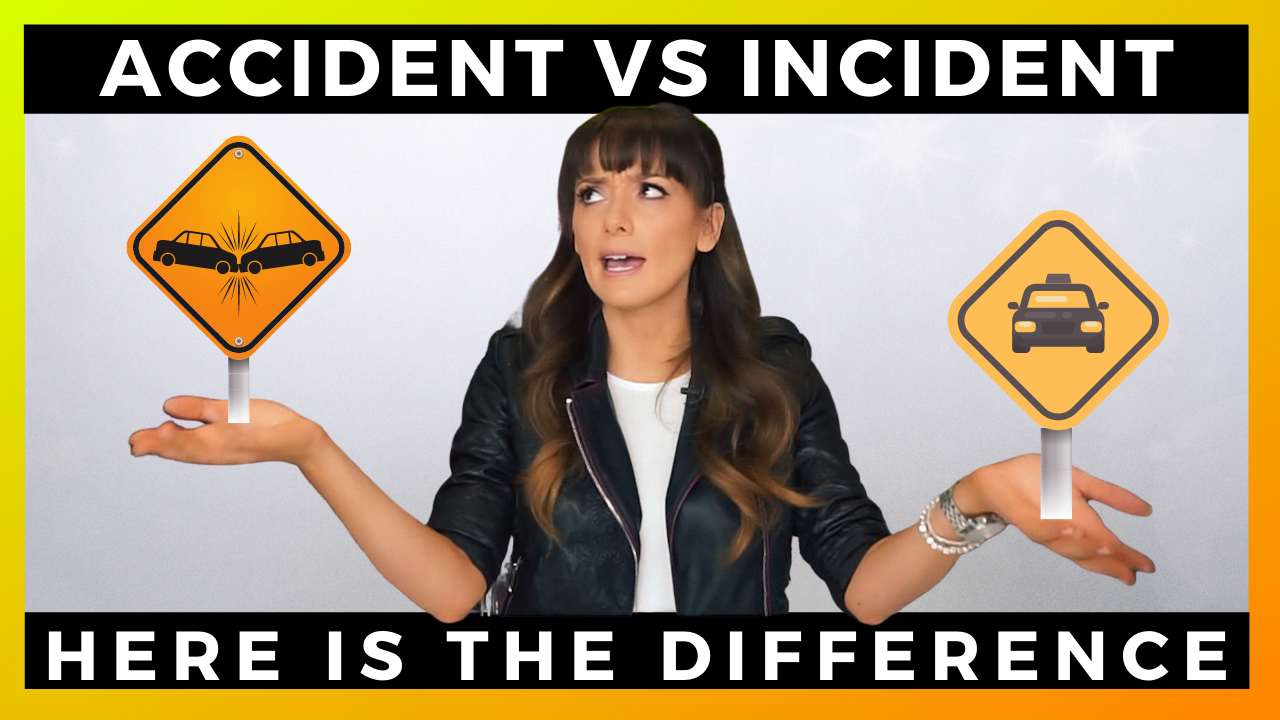Accident and incident, they sound similar and really - what’s the difference?
In safety, we have gone back and forth on the accident versus incident debate for years and different organizations have developed their own special ways defining these terms.
But in this article, are going to make the difference simple and easy to understand.
Accidents and Incidents - The Difference is Intuitive
The words accident and incident are often used interchangeably, like the terms hazard and risk, but there is a difference and I’ve got good news for you - chances are, you probably already have a pretty good instinct for what those differences are.
Look at these two quotes and after each one, imagine what type of event they are referring to.
What comes to mind?
Okay, now look at this quote and notice what type of event comes to mind....
What came to mind this time?
Now, it's quite likely, you had different types of events come to mind when the word incident was used versus the word accident.
That’s because these words have significantly different definitions.
Defining the Difference
An incident is defined as:
“An individual occurrence or event. Something that occurs casually in connection with something else.”
This definition is incredibly vague - and that's purposeful. Incident broadly describes a variety of events. Accident, on the other hand, is more specific.
You see, an incident is an event. An accident is a type of incident.
And an accident is defined as:
“An undesirable or unfortunate happening that occurs unintentionally and usually results in harm, injury, damage, or loss.”
Accident is also defined as:
“An event that happens unexpectedly, without a deliberate plan or cause.”
To make this even simpler, let’s take a look at how these terms are used in a way that actually demonstrates the difference.
What kind of an incident?
Imagine that someone tells you a coworker was recently re-assigned to a new location due to an incident. They will no longer be working in your department.
Typically, the next question is, “What kind of an incident?”
This simple sentence really explains one of the fundamental differences between accidents and incidents.
An incident is a a general term and can cover things like accidents, near-misses, diplomatic or political events, security breeches, and many, many others.
Accidents have unintentional consequences.
Have you ever argued with a friend or family member over whether an event was accidental or intentional?
After all, it can't be an accident if the outcome was intentional.
Incidents can be intentional - but accidents are events that have unintended consequences.
Another word often heard when people explain how an accident happened is mistake. The point being that the outcome wasn’t intentional.
Accidents, tend to indicate a loss of control.
Not only is there an intended consequence, but more often than not, that consequence is undesirable.
In fact, it's implied in the word accident that the outcome is unfavorable. That's why we have to call the rare accident with a positive outcome, "happy accidents".
Incidents describe an event without specifying the outcome.
What does this sentence tell you?
"No one got hurt but there was an incident."
Incidents can describe an event without implying an outcome.
It's sort of a more sophisticated way of saying, "Something happened".
What exactly happened? Well, usually that's a story someone wants to get a few moments to tell you without alarming you.
Accidents imply an event with an unintended, and usually, undesirable consequence.
I hope that helps you to clarify the difference between accident versus incident. I



Leave a comment
All comments are moderated before being published.
This site is protected by reCAPTCHA and the Google Privacy Policy and Terms of Service apply.